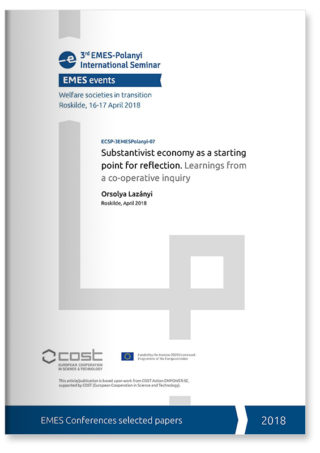Abstract
Solidarity economy is often referred as a collective and transformative action toward a more fair, just and equitable society where economic activity is (re-)embedded into society (Coraggio, 2016). Social innovation can also present a process of radical or transformational changes toward an alternative, ethically just economic system by altering the dominant structures (Smith – Stirling, 2016). Recent researches (Lemaitre – Helmsing, 2012; Telles et al., 2017) have shown however, that these initiatives often face trade-offs between social, political and economic goals and legal and technological aspects can overrule solidarity goals. These processes can lead solidarity economy initiatives to lose their plural, diverse and transformative characteristics and become dominated by market logic in their functioning (Coraggio, 2016). What makes solidarity initiatives and social innovations to resist against the power and domination of the market? How can the abundant academic field support these initiatives in a meaningful way?
This paper aims to present the results of a co-operative inquiry in which members of a grassroots, degrowth-inspired solidarity initiative engaged themselves to better understand the resilience mechanism of the organization. This organization called Cargonomia being a cooperation between environmentally and socially conscious social entrepreneurships operates as a food distribution and cargobike sharing point. It also offers an open space for community and educational activities related to degrowth, well-being, ecology and sustainable transition while experimenting an alternative and democratic way of organizing economic activities.
Co-operative inquiry within the family of action research allows the members of this initiative to explore their world, find new ways of looking at their contradictions and to improve or change their actions in order to do the things better (Reason, 1999). During the co-operative inquiry presented in this paper the lenses of the substantive economy (based on Polanyi, 1957) were used to reflect on the diversity of the activities and the drivers behind and to understand how to re-embed economic activity into its socio-ecological context.
The process of co-operative inquiry has shown how the substantivist economy offers a platform for self-reflection and that it can support grassroots solidarity initiatives in orienting and planning their activities without losing plurality and transformative dynamics, and how economic activities can be re-appropriated in a democratic way.
To read the full paper, please download the pdf











